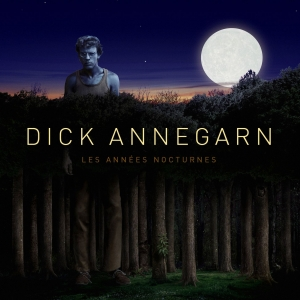Gilgamesh
Dick Annegarn Lyrics
Jump to: Overall Meaning ↴ Line by Line Meaning ↴
Anou veilla sur les toits du brouhaha
Brouhaha brouhaha brouhaha brouhaha
Mille et quelques nuits mille et quelques fruits,
Mille et quelques nuits
Celebrant Mardouk dans les caves d'Uruk
Sous les voutes de Kish
Enkidu demi-dieu du desert et du feu
Anou le crea pour qu'il soit comme toi
Hors-la-loi hors-laloi hors-la-loi hors-la-loi
Ami d'animaux Enkidu est beau Enkidu est doux
Fallut qu'elle y aille, le prenne par la taille, lui tienne compagnie
Enkidu est saoul est sous influence de Gilgamesh
Bijoux et cervoise, gilgamesh en pavoise
Jaloux, tu t'exposes, Enkidu en impose
Au corps a corps, au corps a corps, au corps a corps, au corps a corps
La lutte s'apaise l'amitie leur pese, les pousse au defi
Bravant de gleves la forets de cedres garde jour et nuit
Humbaba est fou, Humbaba est fort, Humbaba est ou,
Ninsun d'Egalama vient voir ca ces deux la
Kidu et Ganesh rien ne les en empeche
De braver Humbaba, Humbaba, Humbaba, Humbaba.
Grace a Shamash ce ne sont pas des laches,
Ce sont des heros
Du bois du Liban preuve de leur sang,
Preuve de leur proue
Uruk, reçois-nous, reçois tes deux fous,
Fais-leur folle tete
D'Uruk et de kish d'ou s'enfuit Gilgamesh
Anou le rappela, Enkiku reste la
Reste la, reste la, reste la, reste la
These lyrics come from Dick Annegarn's song "Gilgamesh," which tells the story of the ancient Mesopotamian king of Uruk and his journey of self-discovery. The song's opening lines refer to Uruk and Kish, two cities in ancient Mesopotamia where Gilgamesh is said to have lived. Anou, the sky god of the Sumerian pantheon, watches over the commotion from the rooftops. The repeated refrain of "Brouhaha" captures the chaotic and bustling nature of life in these cities.
The next stanza describes Gilgamesh and Enkidu, a half-man, half-beast creature created by the gods to be Gilgamesh's equal and friend. Enkidu is depicted as a wild and free spirit with a close affinity with animals. He and Gilgamesh celebrate Marduk, the patron god of Babylon, in the depths of the cities' caverns. As the night wears on, Enkidu and Gilgamesh become intoxicated by their revelry.
The final stanza tells of the two heroes' journey to defeat Humbaba, the guardian of the Cedar Forest. With the help of the sun god, Shamash, they are able to overcome the fearsome giant and return victorious to Uruk. The song ends with Gilgamesh returning to his city, while Enkidu chooses to remain in the wilderness.
Overall, the song captures the essence of the epic tale of Gilgamesh, with its themes of friendship, adventure, and self-discovery.
Line by Line Meaning
D'Uruk ou de Kish d'ou devient Gilgamesh
From Uruk or Kish, Gilgamesh became who he is
Anou veilla sur les toits du brouhaha
Anu watched over the rooftops amidst the noise
Brouhaha brouhaha brouhaha brouhaha
Amidst the noise and chaos
Mille et quelques nuits mille et quelques fruits, Mille et quelques nuits
Thousands of nights, thousands of fruits, thousands of nights
Celebrant Mardouk dans les caves d'Uruk Sous les voutes de Kish
Celebrating Marduk in the caves of Uruk and under the vaults of Kish
Gilgamesh est saoul est sous influence d'Enkidu
Gilgamesh is drunk and under the influence of Enkidu
Enkidu demi-dieu du desert et du feu Anou le crea pour qu'il soit comme toi
Enkidu, demigod of the desert and fire, was created by Anu to be like Gilgamesh
Hors-la-loi hors-laloi hors-la-loi hors-la-loi
Outlaw, outlaw, outlaw
Ami d'animaux Enkidu est beau Enkidu est doux Fallut qu'elle y aille, le prenne par la taille, lui tienne compagnie
Enkidu, friend of animals, is handsome and gentle; a companion took him by the waist and kept him company
Enkidu est saoul est sous influence de Gilgamesh
Enkidu is drunk and under the influence of Gilgamesh
Bijoux et cervoise, gilgamesh en pavoise Jaloux, tu t'exposes, Enkidu en impose Au corps a corps, au corps a corps, au corps a corps, au corps a corps
Adorned in jewelry and drunk on beer, Gilgamesh struts his stuff. Jealousy exposes you, but Enkidu impresses in close combat, in close combat, in close combat, in close combat
La lutte s'apaise l'amitie leur pese, les pousse au defi Bravant de gleves la forets de cedres garde jour et nuit Humbaba est fou, Humbaba est fort, Humbaba est ou,
Their struggle eases and friendship weighs on them, pushing them to a challenge. Challenging the wooded glades of the cedar forest, Humbaba is crazy, Humbaba is strong, Humbaba is where?
Ninsun d'Egalama vient voir ca ces deux la Kidu et Ganesh rien ne les en empeche De braver Humbaba, Humbaba, Humbaba, Humbaba.
Ninsun of Egalama comes to see these two, Kidu and Ganesh; nothing stops them from defying Humbaba, Humbaba, Humbaba, Humbaba.
Grace a Shamash ce ne sont pas des laches, Ce sont des heros Du bois du Liban preuve de leur sang, Preuve de leur proue Uruk, reçois-nous, reçois tes deux fous, Fais-leur folle tete
Thanks to Shamash, they are not cowards, they are heroes. From the wood of Lebanon, proof of their blood and their prowess. Uruk, receive us, receive your two fools, make their heads spin.
D'Uruk et de kish d'ou s'enfuit Gilgamesh Anou le rappela, Enkiku reste la Reste la, reste la, reste la, reste la
From Uruk and Kish, where Gilgamesh fled, Anu called him back; Enkidu stayed there. Stay there, stay there, stay there, stay there.
Contributed by Eli V. Suggest a correction in the comments below.
